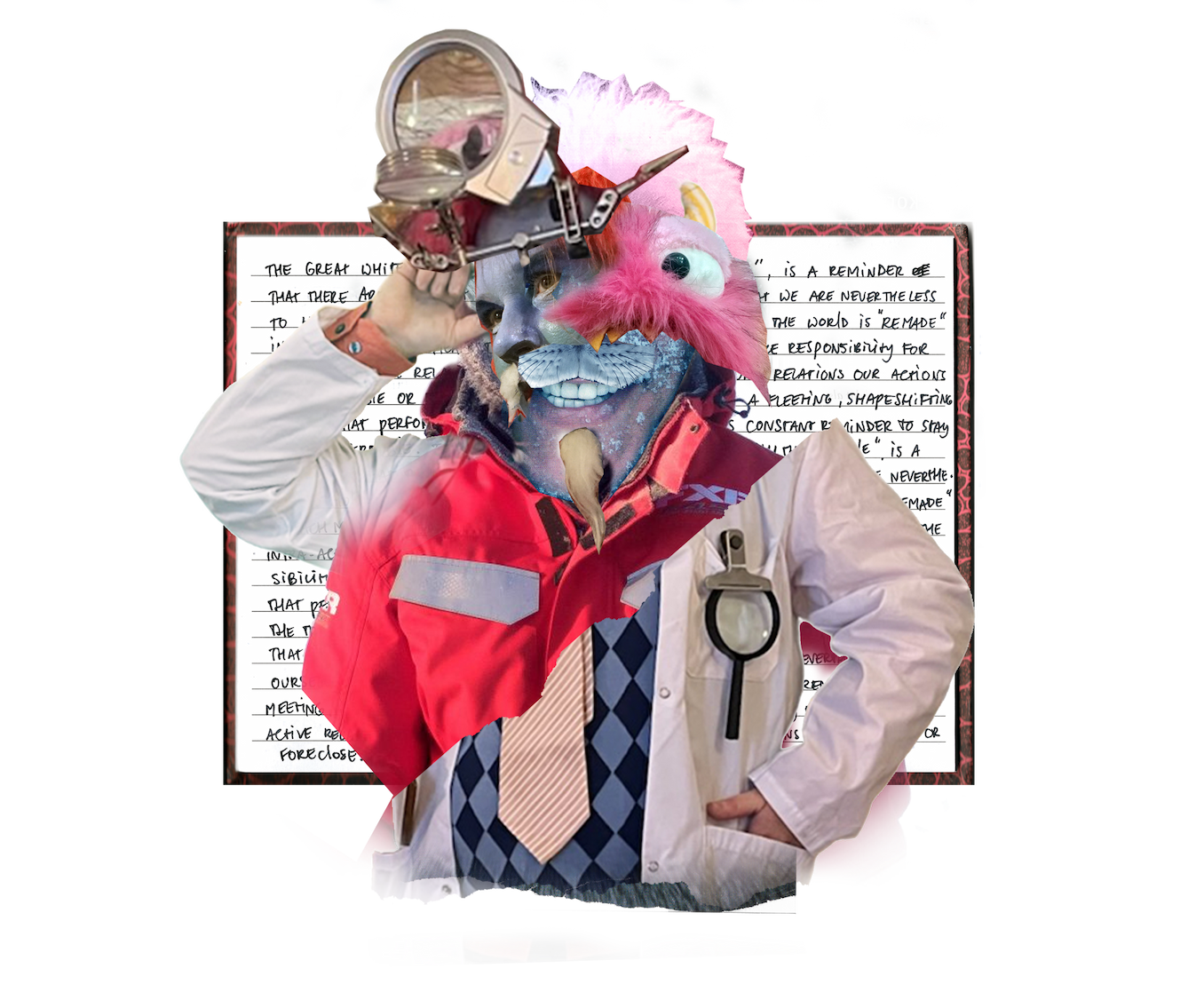Ethics of Response-Ability: Difference between revisions
No edit summary |
No edit summary |
||
| (16 intermediate revisions by the same user not shown) | |||
| Line 1: | Line 1: | ||
[[File:Great | [[File:Great white beast small.png|thumb]] | ||
You have encountered a “Great White Beast”, a fleeting, shapeshifting figure that performs the world as indeterminate | You have encountered a “Great White Beast”, a fleeting, shapeshifting figure that performs the world as indeterminate. | ||
The ethics involved when it comes to drawing from research paradigms that consider the world as indeterminate, intra-dependent and ontologically generative, cannot be resolved through ‘right’ ways of doing things<ref>Rosiek, J., & Adkins-Cartee, M. (2023). Diffracting structure/agency dichotomies, wave/particle dualities, and the citational politics of settler colonial scholars engaging Indigenous studies literature. Cultural Studies↔ Critical Methodologies, 23(2), 157-169.</ref>. | |||
<div class="next_choice">Non-Indigenous researchers engaging any form of generative ontologies need to take responsibility for whichever option they choose: | |||
'''Engaging Indigenous scholarship.''' | |||
<span class=" | |||
Or, | |||
'''Not engaging Indigenous scholarship.''' | |||
Neither option is “innocent.” There are no "easy ways out".</div> | |||
<small><references /></small> | |||
<span class="detour to-cut-3 link" data-page-title="Engage Indigenous Scholarship" data-section-id="0" data-encounter-type="detour">[[Engage Indigenous Scholarship|Detour: Engage Indigenous Scholarship]]</span> | |||
<span class="detour to-cut-3 link" data-page-title="Not Engaging Indigenous Scholarship" data-section-id="0" data-encounter-type="detour">[[Not Engaging Indigenous Scholarship|Detour: Do Not Engage Indigenous Scholarship]]</span> | |||
Latest revision as of 14:47, 18 July 2025

You have encountered a “Great White Beast”, a fleeting, shapeshifting figure that performs the world as indeterminate.
The ethics involved when it comes to drawing from research paradigms that consider the world as indeterminate, intra-dependent and ontologically generative, cannot be resolved through ‘right’ ways of doing things[1].
Non-Indigenous researchers engaging any form of generative ontologies need to take responsibility for whichever option they choose:
Engaging Indigenous scholarship.
Or,
Not engaging Indigenous scholarship.
- ↑ Rosiek, J., & Adkins-Cartee, M. (2023). Diffracting structure/agency dichotomies, wave/particle dualities, and the citational politics of settler colonial scholars engaging Indigenous studies literature. Cultural Studies↔ Critical Methodologies, 23(2), 157-169.
